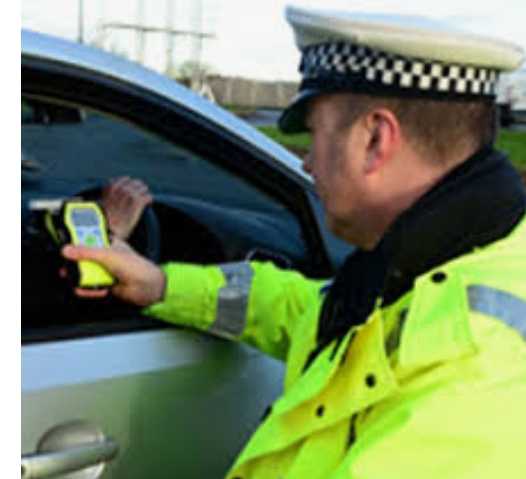
With Government moving full steam ahead with plans to make breathalyzer testing part of the law enforcement apparatus, the Royal Barbados Police Force is reporting readiness to implement the measure.
This revelation was made by acting Commissioner of Police Erwin Boyce who told reporters that his officers were now brought up to speed with regards to the requisite equipment and training. However, Boyce revealed that even though the law has been in effect since January, no one has yet been charged through use of the equipment.
He explained that lawmen were taking a phased approach to enforcing the new law, with public education being phase one.
“We recognise that breathalyzer testing is now part of law enforcement and we recognise that the role of the police is to enforce the law and at the same time provide a platform for educating members of the public. We understand the anxiety of the media and perhaps members of society to see the first case of a person caught through breathlyzer testing, going before the court. From where we sit, we thought it best to pursue the educational as oppose to the operational approach at this moment,” Boyce said.
He added, “I have had people ask me if on January 1, we are going to conduct operations where we are going to be testing people for excess alcohol. This is not how we understood it. We understood it as part of the law and from time to time we will enforce it. We will do what is required to meet the piece of legislation. We have had some conversations with the Ministry of Transport and Works and we had our own internal conversations looking at the best way forward and how we can strategize to make sure that it becomes an effective tool.”
However, Boyce warned persons against entertaining the notion that the force was not in a position to enforce the new measure.
“We will not use the equipment unless we were trained, we will not execute the law unless we understand what is required to put persons before the court. So, where we sit this is a work-in-progress. As for where we are at, I can go and administer a test to anyone right now,” he stressed.
Under the amendments to the Road Traffic Act, persons found in violation of the legal blood alcohol limit, which has been set at 35 micrograms of alcohol per 100 ml of blood (0.08), will face a fine of $5000 or imprisonment for two years, or both in the case of a first conviction. In the case of a second conviction, a fine of $10,000 or imprisonment for a term of five years, or both will be imposed. The new law also makes provisions for persons to be disqualified from holding a driver’s licence for a period of 12 months or up to five years if convicted.
colvillemounsey@barbadostoday.bb






